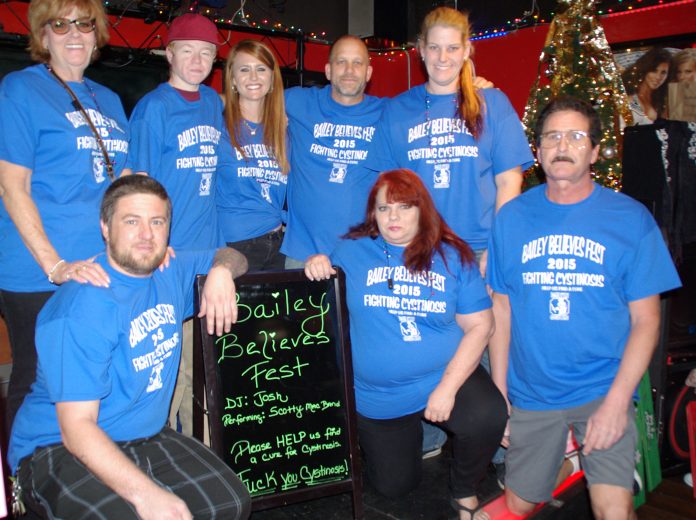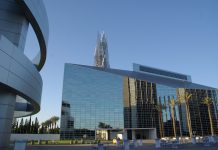By LOREEN BERLIN: This is the story of Bailey.
Bailey has Cystinosis.
Never heard of it, you say? Not many have because in the world, there are only 2,000 known cases and in America, 500 cases. Of those 500, three are right here in Southern California and one is in Stanton.
By LOREEN BERLIN: This is the story of Bailey.
Bailey has Cystinosis.
Never heard of it, you say? Not many have because in the world, there are only 2,000 known cases and in America, 500 cases. Of those 500, three are right here in Southern California and one is in Stanton.
What is known about it: "Cystinosis is a metabolic disease characterized by an abnormal accumulation of the amino acid cystine in various organs of the body such as the kidneys, eyes, muscles, pancreas and the brain. Different organs are affected at different ages and over time Cystinosis destroys the body."
A fundraiser was held in Stanton over the weekend at Lucky John's Bar & Grill at Beach Boulevard and Lampson Avenue, in conjunction with Doggie Stylin' and Grooming Salon, also in Stanton, to raise money for research for Cystinosis.
Bailey's uncle, Jerold Reeves, said 100 percent of the funds raised will be turned over to the Cystinosis Research Foundation in Irvine.
Jan Webb, owner of Doggie Stylin', said the Stanton business community stepped up and provided one of the largest collections of raffle donations for this the fifth fundraiser.
"Jessica Dedio, Bailey's mother, used to babysit my children and she's also a customer at Doggie Stylin'," said Webb. "Also, I have another customer, Bonnie Paju, whose daughter has Cystinosis.”
At approximately 1 years old, Bailey's mother said Bailey simply stopped functioning.
"Bailey had 'failure to thrive.’ He was just like a towel thrown on the floor; he wouldn't eat, he had rickets and had no muscle tone. He was dying," said Dedio. "We went to St. Jude Hospital for eight months, but they couldn't diagnose what was wrong. Finally, we went to CHOC in Orange and they were able to diagnose him.”
Dedio said that at UCSD, Bailey was given 80 medicines to take every six hours. The medicine-taking was around the clock.
”I was told Bailey wouldn't make it to his 10th birthday," Dedio said. "He's had a kidney transplant, takes 85 pills every day and 51 eye-drops-a-day to keep from going blind. He’s made it to his 18th birthday, but we need to find a cure for this terrible disease.”
Because there isn't any government funding for research and it's not cost-effective for a drug company to research the disease, it's called an "orphan" disease.
Cystinosis is explained as an autosomal recessive genetic disease, meaning that both parents carry the abnormal gene, but the parents don't exhibit symptoms of Cystinosis.
"In such couples, the odds are that one-in-four of their children will have Cystinosis. The gene for Cystinosis, CTNS, has been mapped to chromosome 17p13,” Dedio said.
The disease is further explained as: The transporter for cystine is defective in children with Cystinosis and the defect causes the cystine to crystallize within the tissues. The cystine content of the cell is 50-100 times the normal amount.
According to research, three clinical forms of Cystinosis exist. Infantile, late-onset and benign cystinosis.
As in Bailey's case, infantile Cystinosis is generally diagnosed between 6 and 18 months of age with symptoms of excessive thirst and urination, failure to thrive, rickets and episodes of dehydration.
Much remains to be learned about Cystinosis. Investigators are trying to identify the abnormal gene that causes the condition.
Cystinosis affects approximately 1 in 100,000 to 200,000 newborns worldwide. The incidence is higher in the province of Brittany, France, where the disorder affects 1 in 26,000 individuals.
Jessica Dedio said researchers have found a cure in mice that works.
"Now, we just need to find a cure for humans, that's why we are holding this fundraiser," she said.












